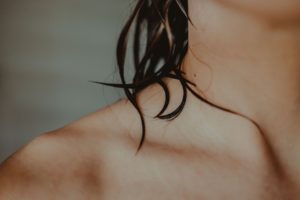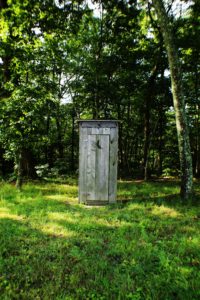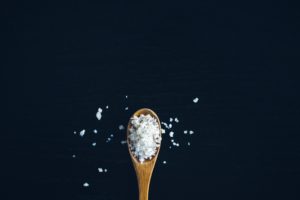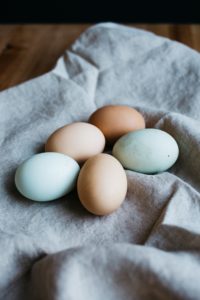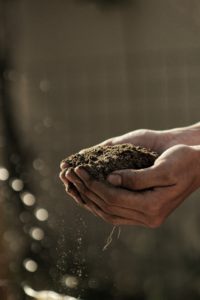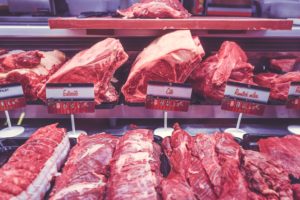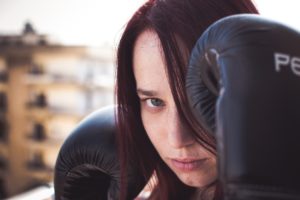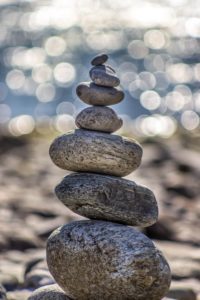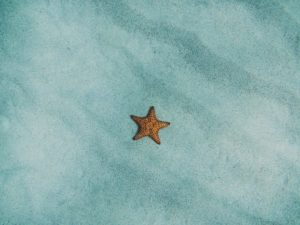The Politics of Food: Update
I posted three times about diet and food in 2017. You can find them here, here and here. They are among my most-read posts, and I’ve had enough comments and reads to encourage me to update my experience a year later. I still read everything I see regarding food, nutrition and diet, and I’m still learning what choices give me optimal health and following new science and data.
For the record, I’m 54 years old, officially in menopause now, 5 feet 8 inches tall and a steady 140 lbs. I do a minimum of two hours of sweat-producing Tai Chi a week, swim laps for 45-60 minutes without stopping weekly, and walk energetically up and down a steep hill with my partner (about 50 minutes) five days a week. This walk is also sweat-producing. I dance occasionally and take shorter walks and snowshoe excursions several times a week. I go up and down steep flights of stairs all day long, shovel snow and help hump hardwood (heavy!) firewood into the barn. My blood pressure and pulse are both low, and my BMI is exactly where it’s supposed to be. I see a dentist and eye doctor regularly and a medical doctor rarely. I take no prescription medications and I don’t drink or smoke. I sleep 8-9 hours a night.
In the summer of 2016, as I was slowly eating fewer and fewer plants and more and more meat and animal fats, I had trouble with hair loss. It occurred about six months into my transition to a very low-carb, high-fat diet. As you can imagine, it gave me pause. My hair is one of my few vanities (it misbehaves so gloriously!) and the women in my family have thick, healthy hair. I freaked out.
My first thought was thyroid. I was previously diagnosed as hypothyroid, but I had quit taking my medication when I moved to Maine in 2015 and had no further symptoms. I went to a doctor and had blood drawn. My thyroid levels were normal. Good news, but it didn’t explain my hair loss. At that particular time I was under a great deal of family stress, and the doctor assured me my hair loss was a stress reaction combined with menopause. I wasn’t much comforted, but I couldn’t find another explanation and he was undisturbed, so I decided to give it some time and see what happened.
The stress in my personal life resolved and after three or four weeks so did the hair loss. I didn’t think any more about it until recently, when my partner, who also eats low-carb, high-fat, told me he’d come across a blog post about temporary hair loss being a side effect of transitioning to a ketogenic diet, and it generally occurs around six months into the diet. Hair loss explained. It’s worth noting that since then, my hair is thicker, wilder and curlier than ever, and it grows fast. I need a cut at least every five weeks.
In my old life, when I was eating a mostly plant-based diet, I really struggled with constipation. I took fiber supplements and ate loads of fiber-rich foods every day, but it seemed like the more fiber I took, the more trouble I had. I also had a lot of bloating and water retention, which was discouraging. I felt fat, and at the same time I felt depleted.
One of my biggest concerns about trying a low-carb diet was the issue of fiber. Everything I’d ever read told me unequivocally that it’s necessary to eat fiber to maintain a healthy GI tract, and cutting out plant-based food seemed to be going in the opposite direction.
What I discovered was that I still struggled with constipation, but it didn’t get worse. I was surprised, but I still wanted to fix the problem. I did a lot of reading on blogs about eating low or zero carb, and found constipation was a concern for many people. Everything I read pointed to focusing on micronutrients, especially when transitioning to low-carb, high-fat eating. I read a lot about electrolytes: salt, magnesium, calcium and potassium. My plant-based diet was low-salt (I was careful about salt and rarely added it when cooking and baking) and high in magnesium and potassium. My understanding was that salt is very bad for us, and causes high blood pressure, water retention and a myriad of other problems. Further reading informed me salt is a necessary nutrient, and I realized I was getting well below the recommended levels of salt, potassium and magnesium in my diet of meat and fat.
I began to supplement magnesium and potassium, and I stopped restricting salt (which I’ve always loved). I also began making sure I drink at least 3 liters of water a day, more when it’s hot and humid. The other thing I read about consistently, and this was the hardest for me, was that one needs to eat at least a pound of meat a day, and many people aim for two. That’s a lot of meat!
When I implemented all this, my constipation went away. My blood pressure and water retention did not increase with increased salt. I never have bloating. If I have trouble now, it’s because I’ve been too sedentary, not drinking or eating enough, or I forgot my usual supplements.
When I began eating low-carb, high-fat, I also started having severe leg and foot cramps, which I’d never had before. They weren’t like my chronic pain and spasm, but in the middle of the night, without warning, my calf or foot would cramp, waking me in a hurry and making me writhe for a few seconds before it relaxed. I was concerned this was a sign that eating this way was as insane and unhealthy as most people say it is and I was starving my body of what it needed, but this, too, turned out to be a function of imbalanced electrolytes and under hydration. I haven’t had any kind of cramp since last year.
In retrospect, I wonder if both my chronic pain and spasm and my constipation had a lot to do with imbalanced electrolytes all along. It may be I’ve been chronically sodium deficient. I also believe I’ve been chronically under hydrated for most of my life. I have to really pay attention in order to get three plus liters of water a day, and I lived in Colorado, which is terribly dry, before I came to Maine. Obviously, staying well hydrated is essential to healthy bowel habits.
Another problem I had was debilitating migraine headaches that lasted for at least 24 hours and made it impossible to function. Photophobia, phonophobia, neuralgia and pounding pain had me in a dark room with an ice pack. For two or three years I had them once a month, right at the full moon. As I started eating meat and fat and reducing carbs, they gradually diminished in intensity, frequency and length. I’ve had one so far this year, and I was able to function all the way through it, albeit with discomfort.
So what, exactly, does my current diet look like?
I eat three thick slices of bacon and two sausage links with four to five buttered eggs every morning. It’s always delicious and I’m not even close to bored eating it daily. I also drink my first liter of water in unsweetened green tea and just plain water with breakfast. Every other day I put a spoonful of fresh farm cream cheese with garlic and herbs on the eggs. We usually eat before 8:00 a.m.
I don’t think about food again until around 3:00 p.m. I write for three or four hours, exercise, do housework, run errands, etc. I usually drink a couple more cups of herbal tea and I drink at least another liter of water. Sometime mid afternoon I’ll feel hungry. My partner makes a beef stew to die for, but we don’t always have that. We always have ground beef, however, and last fall we saved money and bought half a locally-raised cow, butchered and packaged to our specifications. The meat is grass-fed and very lean. I’m sure this is what most people want, but we find it too lean. Because of that, I make a burger patty or crumble and cook the beef in the frying pan from breakfast in order to take advantage of the bacon and sausage fat. The lean ground beef soaks up the fat pretty well, especially if I just crumble and cook it, which takes about 2 minutes. I aim to cook at least 3/4 of a pound of burger.
I find this extremely filling and satisfying. I drink a lot of water with it. Now and then I spoon garlic and herb farm cheese on top. If I’m really starving or feel extra depleted, I bake a half a sweet potato or white potato, anoint it with lots of butter and fresh farm sour cream. I don’t eat any kind of carb without eating fat and meat first.
I also buy unsweetened, full-fat farm yoghurt, and sometimes after my afternoon meal I’ll eat a couple big spoonfuls of that. When there is beef stew, I occasionally like to have a half a thin slice of locally baked wheat bread, liberally buttered, with the gravy. I love ice cream, and about once a week I eat a small bowl of hard ice cream, but only after a good meal of meat and fat. If we buy ice cream in town, I get a child’s serving in a bowl. Cones are just empty carbs, and they make me hurt. My partner likes banana bread, and he occasionally bakes a very low-sugar version. Sometimes I’ll eat a half a thin slice, thickly buttered, as a treat after my afternoon meal.
I have a tendency to react badly to nuts, but I love peanut butter, and we buy nothing-added-but-salt peanut butter from East Wind in bulk. Once a week I eat a spoonful of that on a small square of buttered bread.
Oddly, I’ve discovered eating one spoonful of ice cream a day causes far more problems than having a small serving once a week. For me, there seems to be a cumulative effect in terms of carbs. Now and then I splurge on a carb, just for fun, and if I’ve eaten meat and fat first I can get away with it without too many consequences. If I squirt a little catsup on my burger three days in a row, though, I’m going to start to have pain that limits my activity level and sleep. Commercial catsup, for some stupid reason, is sweetened.
Since I last wrote about food, I’ve done a lot of reading on permaculture, holistic food production, and land management. Please see my Resource page for links. What I’ve learned is that monocropping is biocide. Large-scale animal production can be equally catastrophic for the land and environment. What we know now is that a healthy complex system (i.e., Planet Earth, left undisturbed) contains an essential mix of plants, fungi, microorganisms, insects and animals. Earth is evolved for such communities, and we will destroy the planet if we don’t figure out how to emulate, nurture, protect and participate in such systems. All life will starve to death.
The most extraordinary thing about eating this way, and the hardest part to communicate to someone who doesn’t, is the level of hunger satisfaction. Previously, I was always snacking. A piece of fruit, a couple of pieces of toast, a salad, a smoothie. I was always hungry, and I was always ashamed of it. My shame caused me to withhold food from myself, which only made my cravings worse. My weight, mood and energy fluctuated wildly. My sleep was bad. I had constant pain. I was always thinking about food, one way or another.
It’s hard to express how different it is to eat a big breakfast and walk away feeling really satisfied and full until six or seven hours later. No craving. No shame. No snacking. No sense of deprivation. No counting calories or weighing portions. Then, another big meal, the evening routine and bedtime, satisfied and satiated. When I’m hungry, I eat. I don’t care what time it is or what else is going on. When I’m full, I stop eating. That’s it.
The same level of satisfaction applies to drinking water. We drink filtered water from our old hand-dug well, and I never thought just plain water could give me so much pleasure. You couldn’t pay me to drink soda or sweet tea or any of the things I used to drink. When I’m thirsty, I want water, lovely, fresh, cool, clean water. I’m never bored with it. I never want anything else. It satisfies me in a way that’s so deep it’s almost sensual.
I never feel deprived.
It’s worth noting that the absolutely most satisfying meat is beef. I eat some chicken and, occasionally, turkey, but I have to eat two or three times as much in order to get the same level of satiation, and those meats are less fatty than beef. Pork is good because it’s high-fat, and we hope to be able to buy a half a pig in the future from local farmers.
Sometimes, if I’ve been working unusually hard physically or am unusually emotionally upset, I’ll need a fast snack. In this case, hard-boiled eggs are portable, quick and healthy. Every couple of months I buy a plain ham, unsweetened, smoked, or otherwise manipulated, as fatty as I can find. I thin slice it and pack it into small baggies, which I throw in the freezer until wanted. This provides a quick, high-fat, high-salt, tasty snack I can eat on the run or in a hurry. If I’m going to visit a friend and have a cup of tea or a chat, I eat a little ham so I can have a cracker or cookie with my friend without paying for it in pain.
We have the great good fortune to be able to buy food from a farm. I no longer buy commercial milk, cheese, yoghurt, sour cream or eggs. Nothing compares to food that hasn’t left the farm until you take it home. It puts money back into the local community, fosters small-scale farmers who are working holistically with animals and plants (and they work day and night, let me assure you), and it allows me to know exactly where my food is coming from and how it’s being handled. It’s also fresh and far more delicious than anything available in the grocery store.
I’ve seen blogs and posts from people who claim to have tried a low or zero-carb, high-fat diet and say it “doesn’t work.” I’m not sure what “doesn’t work” means, exactly, but I always long to ask a lot of nosey questions. First, what was the goal? Why did they try it? Secondly, how long did they stick to it? Thirdly, did they really commit to it? Did they suspend their soda habit, stop sweetening their coffee and ditch the “healthy” granola bars? Did they eat meat and animal fat and drink water and nothing else? Lastly, do they smoke tobacco or drink? All alcohol is carbs. Do they take any prescription drugs or use recreational drugs?
Another thing I’ve heard is that eating this way is unmanageable socially. I don’t buy that. If you’re trying to change the way you eat in order to feel better and improve your health and your buddies at the bar give you a bad time for refusing nachos and cheese fries, grow a pair and tell them to back off! Better yet, get them to join you! Do a two-week challenge and bet on who will lose the most weight. True friends will support friends in maintaining health. If you can pack a sandwich for lunch, you can pack fatty ham, hard boiled eggs, and a container of full-fat unsweetened yoghurt. If your only option is fast food, buy a couple of burgers and ditch the buns and condiments. If you want to eat this way, you can. Nobody cares. Nobody’s really paying attention. They’re too busy with their own food preoccupations! Pot luck? Take a tray of cold cuts or deviled eggs. We go out to eat a couple of times a week and enjoy eggs and sausage, meatloaf, pot roast and chopped sirloin. Hold the bread, hold the side salad!
Eating in this way has transformed my life and my health. Shopping is easy, infrequent and fast. Every ten days or so I visit my friend’s farm, buy eight dozen eggs, cheese, sour cream and/or yoghurt (according to need), chat and exchange a hug. I spend a half hour in the kitchen making breakfast, doing dishes, giving the cat fresh water, looking out the windows, watching the birds and thinking about the day ahead. My afternoon meal is either already made (stew) or takes two or three minutes to cook in the breakfast frying pain. I don’t meal plan. We know exactly what we need to budget to eat well. I don’t need a lot of gear and gadgets or cupboard space. The refrigerator is not overflowing with who-knows-what leftovers and outdated food. Our collection of plastic Tupperware containers is virtually unused (which is good, because there are mice in that particular cupboard!). We don’t produce much trash, because we don’t buy cans, bags and boxes. We recycle all our egg cartons, plastic and aluminum. We compost egg shells, tea bags, coffee grounds, and any small amount of vegetable matter. Meat and bacon grease is also perfectly suitable for compost, managed properly. We know farmers who have buried a whole dead goat in the center of their compost pile with no smell and no problem.
I don’t diet. I eat food — joyously, effortlessly, with great satisfaction and pleasure. I drink water with a deep sense of gratitude that I have clean water to drink. I feel healthy, happy, energetic and filled with vitality. My body is my friend and ally, and I think it’s miraculously lovely.
Diet is a personal choice. I suspect different bodies have different requirements. Some people can’t eat eggs or dairy. Some are particularly sensitive to the herbicides in our grains. I also suspect that a lot of the current mainstream information and advice about food is skewed and misleading. I encourage everyone to research for themselves. A sampling of the links I’ve provided in these posts and on my Resource page may provide you with new information and data. Ultimately, the choice is yours, and yours alone. If you’re happy with your physical and mental health, your relationship to food and your body, and you have no need to take over-the-counter or prescription medication, you obviously have figured out what works for you. If not, it’s important to understand you’re not alone and not everyone (not even all doctors) is in agreement about diet.
As for me, I will never go back to a plant-based diet, chronic pain and spasm, constipation, migraines, hypothyroidism, anxiety and depression, insomnia and weight problems. I’m a carnivore, and I eat meat and animal fat with great relish.
All content on this site ©2018
Jennifer Rose
except where otherwise noted

